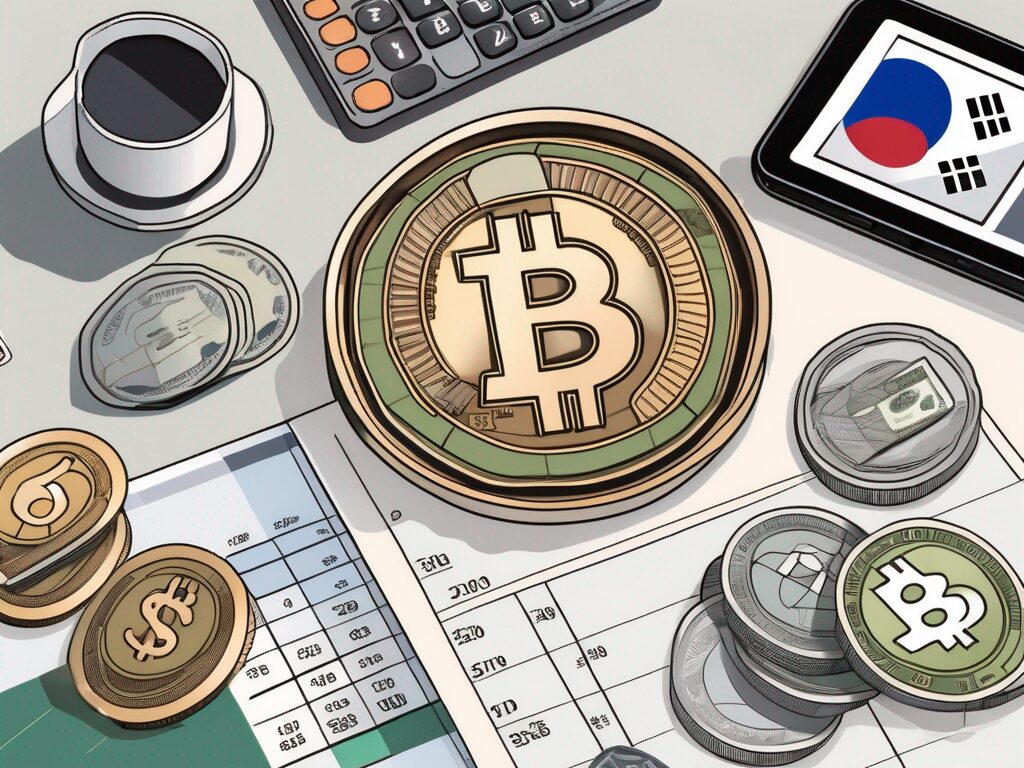Top Basic Pay Expectations in South Korea for 2025 Revealed!
South Korea, recognized for its vibrant culture and cutting-edge technology, possesses a distinctive economic framework that significantly influences the salary expectations of its workforce. The salary landscape in South Korea is shaped by various determinants, including industry type, experience level, and geographical location. This guide aims to furnish a detailed overview of the fundamental pay expectations in South Korea, encompassing average salaries, minimum wage standards, and other pertinent factors.
Average Salary Insights in South Korea
The average salary in South Korea exhibits considerable variation based on industry and experience. As of 2021, the average monthly remuneration for a South Korean employee is approximately 3.2 million KRW (around 2,700 USD). Notably, this figure can escalate for professionals in lucrative sectors such as technology and finance.
For example, a software engineer in South Korea can anticipate an annual salary of approximately 50 million KRW (around 42,000 USD), whereas educators may earn an average of 30 million KRW (approximately 25,000 USD) annually. These statistics illustrate the diverse salary ranges prevalent within the South Korean job market.
Comparative Salaries: Seoul vs. Other Regions
It is essential to recognize that salary levels in South Korea can differ significantly by location. Salaries in Seoul, the capital, are generally higher than those in other regions, primarily due to the elevated cost of living and the concentration of high-paying industries within the city.
However, while the salary in Seoul may be more attractive, the corresponding living expenses are also higher. Consequently, individuals considering employment in Seoul should evaluate not only the salary but also the cost of living, which can substantially impact disposable income.
Minimum Wage Regulations in South Korea
The minimum wage in South Korea is established by the Minimum Wage Council and is subject to annual adjustments. As of 2021, the minimum wage stands at 8,720 KRW per hour (approximately 7.4 USD), translating to a monthly income of around 1.8 million KRW for a standard 40-hour work week.
While the minimum wage appears relatively high compared to many nations, it is crucial to consider the high cost of living in South Korea. Thus, despite the seemingly generous minimum wage, it may not stretch as far as anticipated when accounting for essential expenses such as housing, food, and transportation.
Minimum Wage Versus Average Salary
A comparison between the minimum wage and the average salary in South Korea reveals a notable disparity. This phenomenon is not uncommon and is observed in numerous countries globally. The minimum wage serves to provide a foundational income for workers, while the average salary reflects the earnings of individuals in more skilled or experienced positions.
Importantly, while the minimum wage establishes a baseline, a significant proportion of the workforce in South Korea earns above this threshold. According to a survey conducted by the Korea Wage Indicator, approximately 70% of South Korean workers receive compensation exceeding the minimum wage.
Deciphering the Pay Structure
Understanding the pay structure in South Korea can be intricate, as it often encompasses various elements beyond the base salary. Many organizations offer additional benefits, including housing allowances, meal subsidies, and transportation reimbursements, which can significantly enhance the overall compensation package.
Furthermore, it is customary for South Korean companies to provide a ’13th month’ salary, essentially a bonus equivalent to one month’s salary, typically disbursed at year-end. This practice is prevalent in many Asian countries and can serve as a valuable financial supplement for employees.
Navigating Salary Negotiations
When engaging in salary negotiations in South Korea, it is imperative to conduct thorough research and comprehend the prevailing market rates for your specific industry and role. While negotiating salary is a common practice, it is essential to approach the process with professionalism and respect.
The objective of salary negotiation should be to achieve a mutually beneficial agreement. Therefore, it is vital to consider not only the salary but also the comprehensive compensation package, which includes benefits and allowances.
Conclusion
In summary, the basic pay expectations in South Korea are influenced by a multitude of factors, including industry, experience, and location. While average salaries and minimum wage figures provide a foundational understanding, it is crucial to evaluate the entire compensation package, inclusive of benefits and allowances. By grasping these elements, international teachers can adeptly navigate the South Korean job market and make informed career decisions.
Elevate Your Teaching Career in South Korea with IPGCE
As you explore the pay expectations and career prospects in South Korea, it is essential to recognize that the right qualifications can significantly enhance your professional trajectory. IPGCE offers an International Postgraduate Certificate in Education, equipping you for the rigorous demands of international schools while advancing your career. Our program enables you to overcome common barriers, resulting in a 50% increase in interview callbacks, a 45% rise in promotion rates, and access to a global network of educators. Do not allow limited qualifications to hinder your potential. Join the UK’s premier Teacher Training Course and take the next step in your professional journey. Enroll now and transform your career development with IPGCE.

